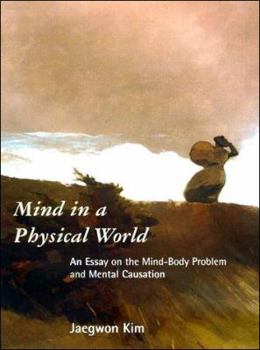Mind in a Physical World: An Essay on the Mind-Body Problem and Mental Causation (Representation and Mind)
(Part of the Representation and Mind Series Series)
Select Format
Select Condition 
Book Overview
This book, based on Jaegwon Kim's 1996 Townsend Lectures, presents the philosopher's current views on a variety of issues in the metaphysics of the mind--in particular, the mind-body problem, mental causation, and reductionism.
This book, based on Jaegwon Kim's 1996 Townsend Lectures, presents the philosopher's current views on a variety of issues in the metaphysics of the mind--in particular, the mind-body problem, mental causation, and reductionism. Kim construes the mind-body problem as that of finding a place for the mind in a world that is fundamentally physical. Among other points, he redefines the roles of supervenience and emergence in the discussion of the mind-body problem. Arguing that various contemporary accounts of mental causation are inadequate, he offers his own partially reductionist solution on the basis of a novel model of reduction. Retaining the informal tone of the lecture format, the book is clear yet sophisticated.





